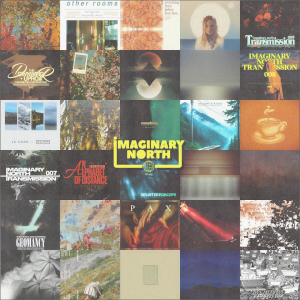 (February 2010) Last September Benbecula Records closed down after 10 years as Scotland’s premier purveyor of leftfield electronica. Pressed for motive, owner, Stephen McConnell, declared: “Music, from pop right through to completely underground, is for the most part shit or a tiring derivative. Art is shit. TV is shit. Movies are shit. Fashion is shit. Western attitudes and values are shit. It seems that we have so little innovation or imagination that we are constantly rehashing and regurgitating the past four or five decades until they have been through our collective bowels at least a dozen times.” But for every disillusioned Benbecula boss, there’s a Herb head. The fledgeling imprint blithely takes on the torch of Scotland’s electronic music tradition, situating itself contentedly in the electronica- ambient-postrock triangle, while distancing itself with a populist sideswipe at electronica’s obscurantist tendency: “In a climate of over-experimental and deeply inaccessible electronic listening music, Herb provides a home for those more refreshing and organic artists seeking to bend musical boundaries rather than re-write them. This is an electronic music label for the post IDM era, where the musical ethos tends towards the emotive rather than the exotic.” So let’s see just how refreshing and organic are these four tokes of Herb.
(February 2010) Last September Benbecula Records closed down after 10 years as Scotland’s premier purveyor of leftfield electronica. Pressed for motive, owner, Stephen McConnell, declared: “Music, from pop right through to completely underground, is for the most part shit or a tiring derivative. Art is shit. TV is shit. Movies are shit. Fashion is shit. Western attitudes and values are shit. It seems that we have so little innovation or imagination that we are constantly rehashing and regurgitating the past four or five decades until they have been through our collective bowels at least a dozen times.” But for every disillusioned Benbecula boss, there’s a Herb head. The fledgeling imprint blithely takes on the torch of Scotland’s electronic music tradition, situating itself contentedly in the electronica- ambient-postrock triangle, while distancing itself with a populist sideswipe at electronica’s obscurantist tendency: “In a climate of over-experimental and deeply inaccessible electronic listening music, Herb provides a home for those more refreshing and organic artists seeking to bend musical boundaries rather than re-write them. This is an electronic music label for the post IDM era, where the musical ethos tends towards the emotive rather than the exotic.” So let’s see just how refreshing and organic are these four tokes of Herb.
 First up is Mosca, apparently circulating since the mid-70’s, which would account for the extended edition of Out Rock’s back pages detailed under his myspace ‘Influences’ – taking in shoegaze-dronepop (Big Black, Spacemen3, Loop), grindcore (Godflesh, Napalm Death, Skullflower), doom-metal (Burning Witch, Earth, Sleep), and Kraut (Cluster, Neu!, Can). To compound this orgy of genre-tagging, he describes his music as electronic / dreampop / drone / growlbient (!), though there’s a sardonic self-consciousnessness in the air there; more salient is a mission statement concerning ‘a focus on texture and the trance-like delirium induced by repetition.’ Swimmer finds him romancing the drone with some style and grace, configuring his soundpool into an insomniac audio document. Opener “Glider” starts in an apparently somniferous zone, a mellifluous bass river running through it, a breath-y glaze atop it, the merest traces of dissonance in the mid-distance hinting at unease; “Honour Hold,” though, adds to the disquiet with queasy melancholia, before “That Which is not Loved Will Surely Die” ramps it up further with slabs of organ topped by whorls of liquid steel, swelling and swelling as if to crescendo before abrupt erasure; allegiance is pledged hereabouts to an electronicized space-rock-drone flag where the likes of Aidan Baker, Labradford and sundry post-Kosmische cluster. Blasts of twitchy atonal pulsing and headachey sinetone await in the ironically titled “Sunshine,” though “Closer to the Golden Dawn” is a lighter affair of Reichian marimba-esque pirouetting over a midnight hum, pointing to that hope that springs in the face of adversity – the most clearly programmatic piece in the insomiac narrative it soundtracks. Hereonafter the set moves from early-Floyd-ish minor-key metallic thematics (“You Were Always So Charming”) to paranoid ghost-boxing (“Nosferatu”), to the ghostly “A Grim Winter Awakes Us,” a chilling eponymous literal evocation of a metaphorical bleak landscape. The mood swings upwards as the night passes, though: “Fabric” hosts swathes of guitar-pluck and Hammond organ-ism – almost pop in comparison to preceding. “Starliner Tower Apartments,” muffled, crackly, hints at a residual headache, but the bright and reverberating Fender Rhodes of “Saturday Night” lifts the torpor, before morning relief comes with the shimmer of “Saturday Night.” All in all, a well conceived and executed exercise in hypnagogue atmospherics. [Listen & Purchase]
First up is Mosca, apparently circulating since the mid-70’s, which would account for the extended edition of Out Rock’s back pages detailed under his myspace ‘Influences’ – taking in shoegaze-dronepop (Big Black, Spacemen3, Loop), grindcore (Godflesh, Napalm Death, Skullflower), doom-metal (Burning Witch, Earth, Sleep), and Kraut (Cluster, Neu!, Can). To compound this orgy of genre-tagging, he describes his music as electronic / dreampop / drone / growlbient (!), though there’s a sardonic self-consciousnessness in the air there; more salient is a mission statement concerning ‘a focus on texture and the trance-like delirium induced by repetition.’ Swimmer finds him romancing the drone with some style and grace, configuring his soundpool into an insomniac audio document. Opener “Glider” starts in an apparently somniferous zone, a mellifluous bass river running through it, a breath-y glaze atop it, the merest traces of dissonance in the mid-distance hinting at unease; “Honour Hold,” though, adds to the disquiet with queasy melancholia, before “That Which is not Loved Will Surely Die” ramps it up further with slabs of organ topped by whorls of liquid steel, swelling and swelling as if to crescendo before abrupt erasure; allegiance is pledged hereabouts to an electronicized space-rock-drone flag where the likes of Aidan Baker, Labradford and sundry post-Kosmische cluster. Blasts of twitchy atonal pulsing and headachey sinetone await in the ironically titled “Sunshine,” though “Closer to the Golden Dawn” is a lighter affair of Reichian marimba-esque pirouetting over a midnight hum, pointing to that hope that springs in the face of adversity – the most clearly programmatic piece in the insomiac narrative it soundtracks. Hereonafter the set moves from early-Floyd-ish minor-key metallic thematics (“You Were Always So Charming”) to paranoid ghost-boxing (“Nosferatu”), to the ghostly “A Grim Winter Awakes Us,” a chilling eponymous literal evocation of a metaphorical bleak landscape. The mood swings upwards as the night passes, though: “Fabric” hosts swathes of guitar-pluck and Hammond organ-ism – almost pop in comparison to preceding. “Starliner Tower Apartments,” muffled, crackly, hints at a residual headache, but the bright and reverberating Fender Rhodes of “Saturday Night” lifts the torpor, before morning relief comes with the shimmer of “Saturday Night.” All in all, a well conceived and executed exercise in hypnagogue atmospherics. [Listen & Purchase]
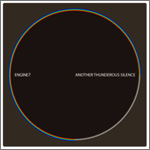 In contrast, Glaswegian Alan McNeil’s Engine7 is very much in the less shifting zone of what was once tagged Emotional Electronic Music (cf. n5md in the early-mid ’00s). Your reviewer, seeking artist background info, turned up a debut EP and album, described as a “dark and gritty style of organic electronica…encompassing shoegaze, ambient and downtempo.” On this latest EP, though, Engine7 seem to have emerged from an isolation tank with evidently only things electronically bright and beautiful piped into it, before being let loose in a studio. Another Thunderous Silence is replete with such sweet signifiers as glockenspiels and children’s musical instruments – that whole Sigur Rós-cum- Múm flirtation with sub-pomp and tweeness. “Nuestra Senora” not only ripples with pianoid prettiness, but positively cascades with backwards strings, swelling into ambi-orchestral grandeur – a grandiosity further ramped up on the Ros-y hued “Me, But Perfect (Glossolalia mix),” with twinkling xylophone-tones, tides of synthetic strings and layered chorals, all heartfelt and dramatic vocals lathered into a sort of soapy hymnal chillout. “Bell Deconstruction” is a treacly concoction of loops subtly shifting in texture, moulded into consonant neo-drones, swimming with an array of strings, phased guitars, piano, more glockenspiel!, and bass-waveforms. Finally, the diaphanously droning “Sunrise, Catalonia (Costa Brava mix)” is all oceanic and sun-kissed, taking a sustained synth chord expansively out toward the horizon in a beatific ascendant ending. There’s accomplishment a-plenty here, but, like an aural analogue of Bailey’s liqueur, it’s all a little too rich and creamy-sweet for these ears – a one-mood suite, at which, admittedly, it succeeds admirably… for those in the mood. [Listen & Purchase]
In contrast, Glaswegian Alan McNeil’s Engine7 is very much in the less shifting zone of what was once tagged Emotional Electronic Music (cf. n5md in the early-mid ’00s). Your reviewer, seeking artist background info, turned up a debut EP and album, described as a “dark and gritty style of organic electronica…encompassing shoegaze, ambient and downtempo.” On this latest EP, though, Engine7 seem to have emerged from an isolation tank with evidently only things electronically bright and beautiful piped into it, before being let loose in a studio. Another Thunderous Silence is replete with such sweet signifiers as glockenspiels and children’s musical instruments – that whole Sigur Rós-cum- Múm flirtation with sub-pomp and tweeness. “Nuestra Senora” not only ripples with pianoid prettiness, but positively cascades with backwards strings, swelling into ambi-orchestral grandeur – a grandiosity further ramped up on the Ros-y hued “Me, But Perfect (Glossolalia mix),” with twinkling xylophone-tones, tides of synthetic strings and layered chorals, all heartfelt and dramatic vocals lathered into a sort of soapy hymnal chillout. “Bell Deconstruction” is a treacly concoction of loops subtly shifting in texture, moulded into consonant neo-drones, swimming with an array of strings, phased guitars, piano, more glockenspiel!, and bass-waveforms. Finally, the diaphanously droning “Sunrise, Catalonia (Costa Brava mix)” is all oceanic and sun-kissed, taking a sustained synth chord expansively out toward the horizon in a beatific ascendant ending. There’s accomplishment a-plenty here, but, like an aural analogue of Bailey’s liqueur, it’s all a little too rich and creamy-sweet for these ears – a one-mood suite, at which, admittedly, it succeeds admirably… for those in the mood. [Listen & Purchase]
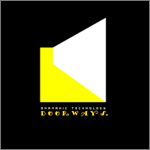 On to B(ournemouth)-boy, Chris Hare, former DJ (aren’t we all?), shaking off the shackles of being what he plays, to… possibly, play what he is: viz. an Electronica whiz-kid, debuting, ill-dubbed, as Shamanic Technology. Doorways is in similar head-nodding (favoured epithet of Herb blurb-ings) mode to label-pals Rubens (review here), but ‘presented in a much darker manner’ (really must kick this cue card habit!). Anyway, somewhat akin to the aforementioned Rubens, Doorways is an amalgam of ‘electronic pulses, nostalgic synths, found sounds, beat programming’ (no good – I’m hooked on blurb stuff), y’know… squarely in mid-90s Warp/IDM mould, with nods a-go-go to the likes of Black Dog, Plaid, B12, Bola – the old Golden Age of Electronica? – and back 15 years to echoes of the first wave of 70s e-music of Tangerine Dream and Cluster, and forward again to broken beats and sample psychedelics trailing Tobin-esque bricolage. The air of Doorways is thick with the secondhand daylight of retro-futurist nostalgism, its influences showing through, transparent, too unmediated. And, for all the talk of influences, ultimately, some might say, the music stands or falls on its own merits, but though it would be harsh to pronounce it fallen, equally, there’s not that much to make it stand proud. [Listen & Purchase]
On to B(ournemouth)-boy, Chris Hare, former DJ (aren’t we all?), shaking off the shackles of being what he plays, to… possibly, play what he is: viz. an Electronica whiz-kid, debuting, ill-dubbed, as Shamanic Technology. Doorways is in similar head-nodding (favoured epithet of Herb blurb-ings) mode to label-pals Rubens (review here), but ‘presented in a much darker manner’ (really must kick this cue card habit!). Anyway, somewhat akin to the aforementioned Rubens, Doorways is an amalgam of ‘electronic pulses, nostalgic synths, found sounds, beat programming’ (no good – I’m hooked on blurb stuff), y’know… squarely in mid-90s Warp/IDM mould, with nods a-go-go to the likes of Black Dog, Plaid, B12, Bola – the old Golden Age of Electronica? – and back 15 years to echoes of the first wave of 70s e-music of Tangerine Dream and Cluster, and forward again to broken beats and sample psychedelics trailing Tobin-esque bricolage. The air of Doorways is thick with the secondhand daylight of retro-futurist nostalgism, its influences showing through, transparent, too unmediated. And, for all the talk of influences, ultimately, some might say, the music stands or falls on its own merits, but though it would be harsh to pronounce it fallen, equally, there’s not that much to make it stand proud. [Listen & Purchase]
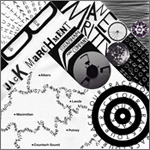 Finally, there’s Jack Marchment, who, coincidentally, first surfaced in 2006 on Benbecula, his contribution to that label’s Minerals series taking its inspiration from old recordings made – while a student at Oxford – of ambient electronic noise issuing from the room below. Similarly conceptual, but differently conceived, his latest frame houses a kind of oblique portrait of the artist’s stay at “l’academia electro-acoustica” in Milan; its tracks were seemingly authored in a spirit of “self-produced pornography,” for Marchment, with Xenakis, Varese and the like a kind of ectoplasmic Euro-cultural fantasy cast – also starring “Albers” (artist, Josef) and “Delia Dub” (Ur-electronics maven, Derbyshire), and “Marinetti” (F.T., Futurism’s founder). It’s not just the titling of Who’s Afraid of Iannis Xenakis? that suggests a ludic spirit, as we find ourselves dealing with something of a musical po-mo boho spirit too. Trafficking in an analogue-articulated electronics fusing 50s/60s space-age allusions with 90s Warp and ambient techno (with the odd dash of 70s Kosmische), Marchment does his bric-a-brac thing with an imagination and a winning knowingness that sets it apart from Shamanic Technology’s more mimetic approach (see above). The likes of “Schult-Abbey” and “Brabham and Company,” “Anquetil” and “Putney” (aka the VCS3 synthesizer) effectively recontextualise the abovementioned strands in an eclectic potting of electronic music history with an eye to those with ears attuned to the glitch’n’crunch of the 20th/21st millenium turn. So, in a recontextualist rush come a warbly weathered synth-wooze rubbing up against locked beats redolent of – without, note, being derivative of – BoC (“Marinetti”), an episode of interstellar overdriven electronica (“Delia Dub”), and a mental(ist) deconstruction of stuttering dubstep (“Maximilian”). Then there’s the fertile flexistentialism of “Albers,” with its scratchy breakbeats roughed up with a collagist’s grabbag of samples and synthemes, and “Countach Sound,” launching from a pulse into the AE-thers before coming downtempo. All of the above collectively show no mere jackdaw-spirit musical mischief-maker, but an artist whose panache in pastiche is ignited by a spark that sets Marchment apart from a herd of pedestrian dressings up of showroom dummies. [Listen & Purchase]
Finally, there’s Jack Marchment, who, coincidentally, first surfaced in 2006 on Benbecula, his contribution to that label’s Minerals series taking its inspiration from old recordings made – while a student at Oxford – of ambient electronic noise issuing from the room below. Similarly conceptual, but differently conceived, his latest frame houses a kind of oblique portrait of the artist’s stay at “l’academia electro-acoustica” in Milan; its tracks were seemingly authored in a spirit of “self-produced pornography,” for Marchment, with Xenakis, Varese and the like a kind of ectoplasmic Euro-cultural fantasy cast – also starring “Albers” (artist, Josef) and “Delia Dub” (Ur-electronics maven, Derbyshire), and “Marinetti” (F.T., Futurism’s founder). It’s not just the titling of Who’s Afraid of Iannis Xenakis? that suggests a ludic spirit, as we find ourselves dealing with something of a musical po-mo boho spirit too. Trafficking in an analogue-articulated electronics fusing 50s/60s space-age allusions with 90s Warp and ambient techno (with the odd dash of 70s Kosmische), Marchment does his bric-a-brac thing with an imagination and a winning knowingness that sets it apart from Shamanic Technology’s more mimetic approach (see above). The likes of “Schult-Abbey” and “Brabham and Company,” “Anquetil” and “Putney” (aka the VCS3 synthesizer) effectively recontextualise the abovementioned strands in an eclectic potting of electronic music history with an eye to those with ears attuned to the glitch’n’crunch of the 20th/21st millenium turn. So, in a recontextualist rush come a warbly weathered synth-wooze rubbing up against locked beats redolent of – without, note, being derivative of – BoC (“Marinetti”), an episode of interstellar overdriven electronica (“Delia Dub”), and a mental(ist) deconstruction of stuttering dubstep (“Maximilian”). Then there’s the fertile flexistentialism of “Albers,” with its scratchy breakbeats roughed up with a collagist’s grabbag of samples and synthemes, and “Countach Sound,” launching from a pulse into the AE-thers before coming downtempo. All of the above collectively show no mere jackdaw-spirit musical mischief-maker, but an artist whose panache in pastiche is ignited by a spark that sets Marchment apart from a herd of pedestrian dressings up of showroom dummies. [Listen & Purchase]
All releases are out now on Herb.






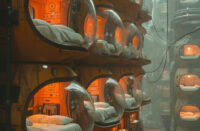

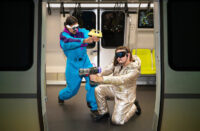



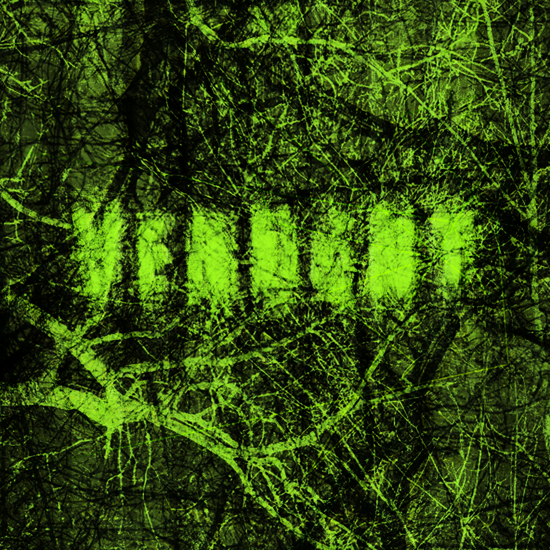
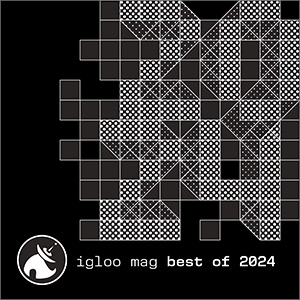


![Hasbeen :: Bunker Symphonies II (Clean Error) — [concise]](https://igloomag.com/wp/wp-content/uploads/2025/04/hasbeen-bunker-symphonies-ii_feat-75x75.jpg)
![Extrawelt :: AE-13 (Adepta Editions) — [concise]](https://igloomag.com/wp/wp-content/uploads/2025/04/extrawelt-ae-13_v_feat-75x75.jpg)
![Beyond the Black Hole :: Protonic Flux EP (Nebleena) — [concise]](https://igloomag.com/wp/wp-content/uploads/2025/04/beyond-the-black-hole-protonic-flux_feat-75x75.jpg)
![H. Ruine, Mikhail Kireev :: Imagined / Awakenings (Mestnost) — [concise]](https://igloomag.com/wp/wp-content/uploads/2025/04/h-ruine-mikhail-kireev-imagined-awakenings_feat2-75x75.jpg)


![Squaric :: 808 [Remixes] (Diffuse Reality) — [concise]](https://igloomag.com/wp/wp-content/uploads/2025/04/squaric-808-remixes_feat-75x75.jpg)
